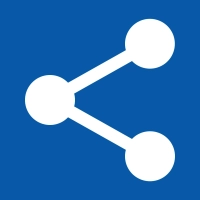The Future of Connection: Unleashing the Power of Decentralized Social Media
In the rapidly evolving landscape of social media, a new era is on the horizon. The future of connection lies in decentralized social media, a concept that integrates blockchain technology to create enhanced connectivity, peer-to-peer interaction, and tokenized relationships. November 18, 2023 17:14
This blog explores the innovations in social media within the Web3.0 era and how these pioneering technologies are transforming the digital landscape. Get ready to unleash the power of decentralized social media and empower your connections like never before!
The Importance of Connection in the Digital Age
In this digital age, connection has become more important than ever before. With the advent of social media, we have experienced tremendous advancements in how we communicate and interact with one another. However, amidst the benefits, there have also been challenges and concerns. Traditional social media platforms have centralized control, limiting our ability to fully control our own data and privacy.
Decentralized social media holds the key to addressing these concerns. By utilizing blockchain technology, decentralized social media platforms offer enhanced privacy, security, and control over personal data. This empowers individuals to connect with others in a more meaningful and secure way.
Moreover, decentralized social media opens up new possibilities for monetization and tokenized relationships. Through the use of digital tokens, individuals can be rewarded for their contributions and engagement on the platform. This creates a more inclusive and fair ecosystem, where everyone has the opportunity to benefit from their participation.
In the next section, we will delve deeper into the features and benefits of decentralized social media, and how it is revolutionizing the way we connect and interact online. Stay tuned for an exciting exploration of this groundbreaking technology!
What is Decentralized Social Media?
Decentralized social media refers to a new breed of social networking platforms that operate on the principles of decentralization and blockchain technology. Unlike traditional social media platforms, which are typically owned and controlled by centralized entities, decentralized social media platforms are built upon a peer-to-peer network where no single authority has complete control.
The decentralized nature of these platforms offers several key advantages. First and foremost, it enhances user privacy and security. With decentralized social media, users have complete control over their personal data and who has access to it. This eliminates the concerns of data breaches and surveillance that have plagued centralized platforms.
Furthermore, decentralized social media enables users to have a more meaningful and authentic connection with others. By removing the middlemen and intermediaries, users can engage directly with one another, eliminating the noise and distractions often found on traditional social media platforms.
Another fascinating aspect of decentralized social media is the potential for creating tokenized relationships. Digital tokens, built on blockchain technology, can be used within these platforms as a means of rewarding users for their contributions and interactions. This introduces a new paradigm of incentivization, where users are actively rewarded for their engagement and participation.
In the upcoming section, we will explore some of the most popular decentralized social media platforms currently available and the unique features they offer. Stay tuned, as we delve deeper into the exciting world of decentralized social media and its transformative impact on how we connect and interact online.
Advantages of Decentralized Social Media
Decentralized social media platforms offer several advantages over traditional, centralized platforms. Firstly, they provide enhanced privacy and security. With decentralized social media, users have full control over their personal data, preventing data breaches and surveillance. This gives users peace of mind and fosters trust in the platform.
Secondly, decentralized social media enables more authentic and meaningful connections. By eliminating middlemen and intermediaries, users can engage directly with others, free from noise and distractions. This promotes genuine interactions and reduces the spread of false information.
Furthermore, decentralized social media introduces the concept of tokenized relationships. Users can be rewarded with digital tokens for their contributions and engagement on the platform. This incentivizes active participation and acknowledges the value users bring to the community.
In the next section, we will explore some of the most popular decentralized social media platforms and the unique features they offer. Join us as we discover the powerful potential of decentralized social media in revolutionizing our online connections.
Challenges and Limitations of Decentralized Social Media
While decentralized social media platforms offer numerous advantages, they also face certain challenges and limitations. One major challenge is the issue of scalability. As decentralized platforms grow in size and user base, the technology that supports them must be able to handle the increasing demand. Scaling decentralized systems to accommodate millions of users while maintaining efficiency and speed is a complex task.
Another limitation is the potential for regulatory hurdles. Decentralized platforms operate outside traditional centralized models, which may lead to legal and regulatory concerns in some jurisdictions. Finding the right balance between privacy, security, and compliance with local laws is crucial for the success and widespread adoption of decentralized social media.
Furthermore, the decentralized nature of these platforms can also introduce new challenges related to governance. Without a central authority to oversee operations and resolve disputes, decision-making processes and community governance can become more complex. Ensuring transparency, accountability, and fair representation within decentralized social media communities is essential.
In the final section of this blog, we will address these challenges and explore potential solutions that can propel decentralized social media into the mainstream. Stay tuned as we delve into the future of connection and the transformative power of decentralized social media.
Strategies for Harnessing the Power of Decentralized Social Media
As decentralized social media continues to evolve, innovative strategies are emerging to overcome the challenges and unlock its transformative potential. One crucial strategy is the implementation of scalable infrastructure. Developers are working tirelessly to enhance the underlying technology, ensuring that it can handle the growing demands of decentralized platforms. By improving scalability, these platforms can accommodate millions of users without compromising efficiency and speed.
Another vital aspect is navigating regulatory hurdles. To address this, decentralized social media platforms are partnering with legal experts and government authorities to develop frameworks that align with local laws while preserving privacy and security. By striking the right balance, these platforms can foster regulatory acceptance and widespread adoption.
Furthermore, for effective governance, decentralized social media communities are exploring various initiatives. From democratic decision-making processes to decentralized autonomous organizations (DAOs), efforts are being made to ensure transparency, accountability, and fair representation. This way, users can actively participate in shaping the direction of these platforms and foster a sense of ownership and inclusivity.
In the next section, we will delve into specific case studies that exemplify the successes and possibilities of decentralized social media. Join us as we uncover how these strategies are being utilized to unleash the power of decentralization and revolutionize the way we connect and communicate.
The Potential Impact on Society and Businesses
Decentralized social media has the potential to revolutionize society and businesses in numerous ways. By eliminating the centralization of power and control, individuals can regain ownership of their data and have greater control over their online identities. This shift towards user-centric platforms empowers individuals with more privacy, security, and freedom of expression.
From a societal perspective, decentralized social media can democratize information sharing and amplify marginalized voices. By removing gatekeepers and intermediaries, it enables a diverse range of perspectives to be heard and fosters a more inclusive and equitable discourse. This can lead to increased social awareness, empathy, and collaboration, ultimately driving positive social change.
Businesses can also benefit from decentralized social media. With direct access to customer data and insights, companies can develop more personalized and targeted marketing strategies. Additionally, through tokenization and decentralized finance, businesses can explore new monetization models and potentially eliminate intermediaries in transactions, reducing costs and increasing efficiency.
In the following sections, we will explore specific case studies that highlight the transformative impact of decentralized social media on society and businesses. Stay tuned as we delve into real-world examples and delve into the potential opportunities and challenges that lie ahead.
Embracing the Future of Connection
In conclusion, the future of connection lies in the power of decentralized social media. As we have seen, this shift towards user-centric platforms has the potential to revolutionize society and businesses in countless ways. By empowering individuals with more privacy, security, and freedom of expression, decentralized social media can democratize information sharing and amplify marginalized voices.
From a societal perspective, this transformation can foster a more inclusive and equitable discourse, leading to increased social awareness, empathy, and collaboration. Businesses, on the other hand, can leverage direct access to customer data and insights to develop personalized marketing strategies and explore new monetization models through tokenization and decentralized finance.
While there are certainly challenges ahead, the opportunities presented by decentralized social media cannot be ignored. It is our collective responsibility to embrace this future of connection and work towards harnessing its full potential for the betterment of society and businesses alike.
Stay tuned as we delve into specific case studies that demonstrate the transformative impact of decentralized social media, and explore the opportunities and challenges that lie ahead. The world is changing, and we must be ready to embrace the new possibilities it brings.
User Comments (0)
Popular DeSo Apps










